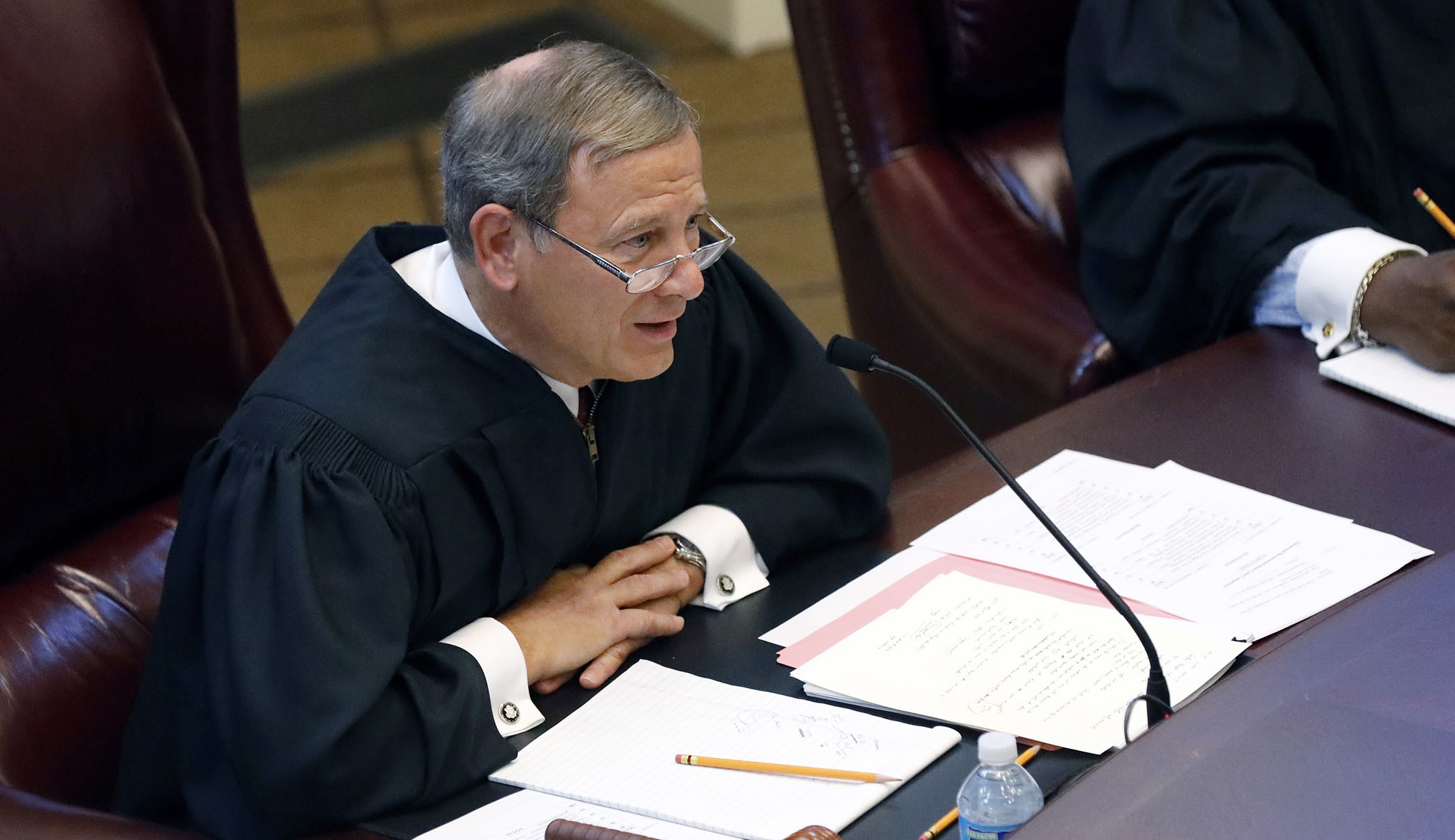Upshot of Thursday’s SCOTUS rulings: Courts are God except for one ‘rare circumstance’
Today’s Supreme Court ruling in the gerrymandering cases was a victory for those who believe in the proper role of courts, irrespective of political outcome. It’s a refreshing change of pace from judicial supremacy. Unfortunately, what the chief justice giveth in the redistricting case, he taketh in the census citizenship case where he reaffirmed the power of the courts to get involved in every other political question and litigate it to death. His opinion in the census case will reverberate much deeper than the one in the redistricting case.
I am a conservative living in Maryland’s 3rd Congressional District, the most gerrymandered district in the country. As the entire squiggly line scheme was designed to place conservative voters at a disadvantage, I’m on the losing side of the gerrymander. Yet, I’m celebrating today’s Supreme Court ruling declining to get involved in gerrymanders from either party. Let’s leave political questions to the political branches and individualized legal questions to the courts.
As Chief Justice John Roberts rightfully wrote for the 5-4 majority in the combined redistricting cases in Rucho v. Common Cause:
Chief Justice Marshall famously wrote that it is “the province and duty of the judicial department to say what the law is.” Marbury v. Madison, 1 Cranch 137, 177 (1803). Sometimes, however, “the law is that the judicial department has no business entertaining the claim of unlawfulness—because the question is entrusted to one of the political branches or involves no judicially enforceable rights.” Vieth v. Jubelirer, 541 U. S. 267, 277 (2004) (plurality opinion).
After reading this opinion, some of us who take the originalist approach to judicial power seriously were dancing on tables. That is … until the census case – Department of Commerce v. New York et al. – was released to the public 15 minutes later. The notion that a state can sue the federal government for asking the most important question of a census, whether one is a citizen – a question that has been asked for most of our history – is absurd. The same way Roberts ruled that deciding redistricting disputes should be nonjusticiable, he should have understood that this is just as much of a political question with no avenue for courts to get involved.
In the redistricting case, Roberts recognized the common sense that “history is not irrelevant” and that “[T]he Framers were aware of electoral districting problems and considered what to do about them,” and settled on leaving it to political bodies. Then, in the census case, while recognizing that “our interpretation of the Constitution is guided by a Government practice [asking a citizenship question] that “has been open, widespread, and un-challenged since the early days of the Republic,” he refuses to reverse the lower court’s interference with its enactment.
In a complex and defragmented plurality ruling that morphed into a unanimous order, Chief Justice Roberts helped give liberals a majority in keeping the litigation against the census question alive by remanding the case back to the courts. Meanwhile, rather than rebuking the lower courts for getting involved in a political dispute in such an unprecedented way, he legitimized much of their ruling. Moreover, with this ruling, he gave them endless ammo to shut down any common sense and lawful executive actions governing the enforcement of many critical laws, which will reverberate in other spheres of policy such as border security.
Read the rest from Daniel Horowitz HERE and follow link below to J. Christian Adams’ take on the SCOTUS decisions:







Comments are closed.